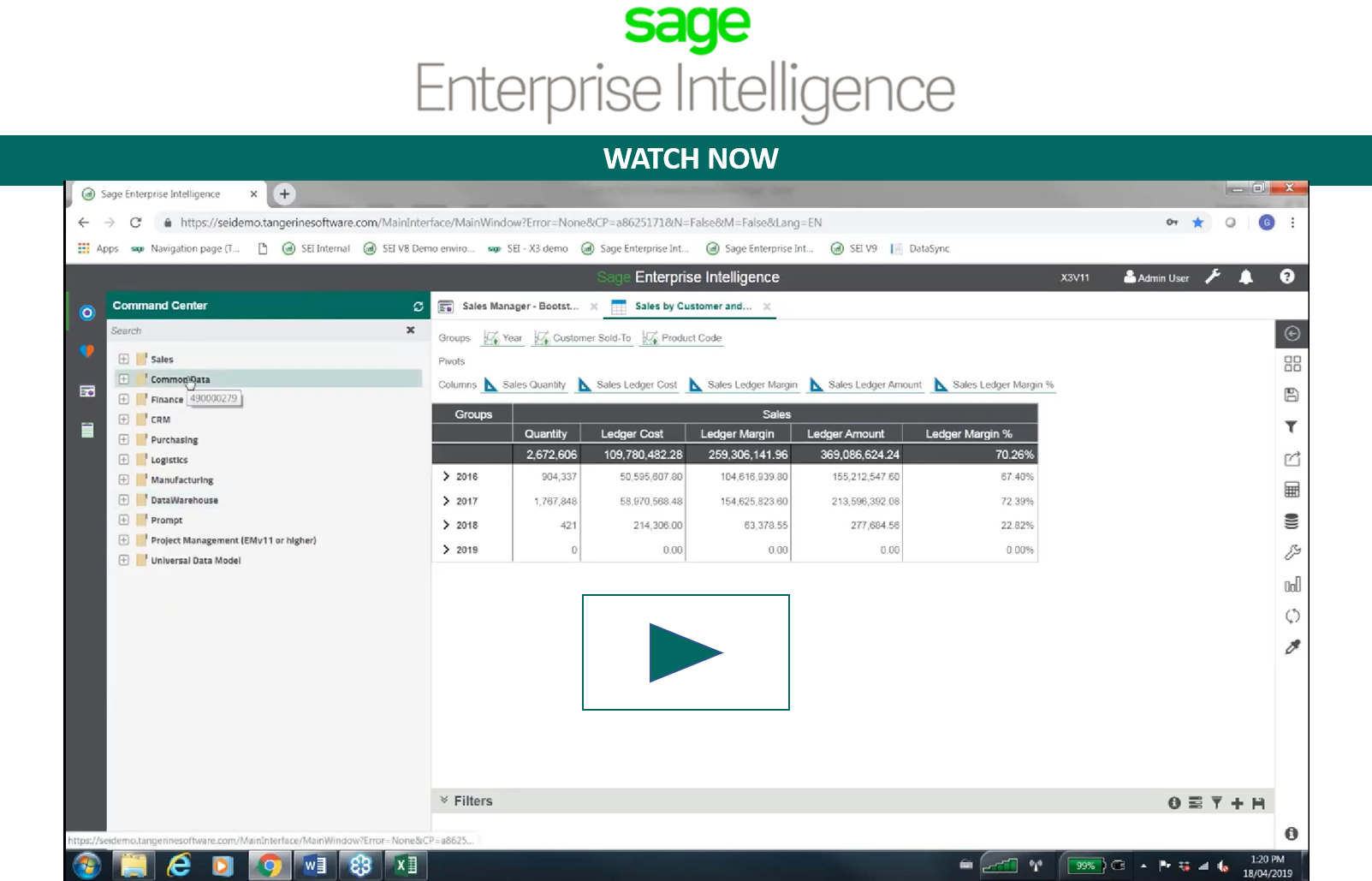ERP Software Comparison

When shopping for a new accounting system, the Enterprise Resource Planning (ERP) market is very large and complex. What was once a market dominated by a handful of vendors, now hundreds of options are now competing. Every vendor claims to offer best-of-breed applications. For small businesses looking to leverage ERP technology, Intuit QuickBooks Enterprise and Sage 300 (formerly known as Sage Accpac) may be on their evaluation list.
QuickBooks Enterprise
QuickBooks Enterprise is easy to purchase as it is sold through both resellers and direct with an extensive partner network. It’s simple, easy-to-use, and provides an easy transition from spreadsheet-based systems. Pricing is based on per user subscription tiers with no other maintenance fees beyond the subscription.
Sage 300 ERP
Sage 300 ERP technology and processes have evolved to create a streamlined and efficient solution for small to mid-market companies with up to several hundred users. Sage 300 offers local and international support through an extensive business partner network. With choices of modules, deployment methods and editions, companies can add and adopt greater functionality as their business grows. Total cost of ownership can be kept as low as possible with flexible solutions that allows companies to select the best edition, modules, deployment method and payment options to meet business needs.
Comparison Points:
- CRM — Your sales data is some of the most important pieces to your business. As such, shouldn’t your ERP treat it the same way? QuickBooks Enterprise Solutions does not provide CRM capabilities directly through the solution. Your sales information is valuable and should not be trusted to a bolt-on CRM system. With Sage CRM is built into Sage 300 ERP you can automate your business processes to synchronize sales, marketing, and customer care activities across your organization and take advantage of complete business and customer perspectives. Confidently manage relationships while you focus on driving revenue through targeted campaigns, informed up-sell and cross-sell opportunities, and improved customer nurturing.
- Price — QuickBooks Enterprise Pricing is competitive though it is primarily hosted and owned by the user. The first subscription year includes the full-service plan for QuickBooks support and maintenance. Sage 300 offers companies the option to purchase the software and either cloud-host or install as client/server, as well as subscription-based systems (pay-per-user/per year).
- Mobile — Your active users would not be able to access QuickBooks through phone or mobile devices. In this day and age of mobility, that should be a red flag. While most office users won’t require mobile access, sales users are often remote and not having mobility results in delayed input of data and the reduction in the quality of data as time elapses.
- Ease of Use — QuickBooks’ user interface is simple, intuitive, and easy to use. They offer eight hours of web-based training broken down by specific module functionality and requires little education and training to get up to speed. Those coming off a more complex software are often dissatisfied with the lack of sophistication of features in QuickBooks such as advanced inventory or pricing. People coming from an entry level or spreadsheet-based accounting system often find Sage 300 a bit difficult to navigate at first, but once they are used to it, find it easy to use.
- Growth — QuickBooks loses its benefits when scaling the company up and the accounting system needs to be better integrated with the operational aspects of the company. QuickBooks functionality is limited if you have more than one entity and need to consolidate financial reports. Sage 300 offers multi-entities and intercompany transactions and consolidations.
- Audit Control — QuickBooks allows users to delete entries. This is a great feature to quickly correct errors, however from an audit perspective, does not provide appropriate control and security. Sage 300 is well known for its ability to meet the many requirements of governments, regulators and auditors.
All systems have their strengths and weaknesses. However, depending on the size and scope of the business needs and the means by which your organization aims to engage and grow, either QuickBooks Enterprise or Sage 300 ERP might have the right combination of price and features to work for you.



